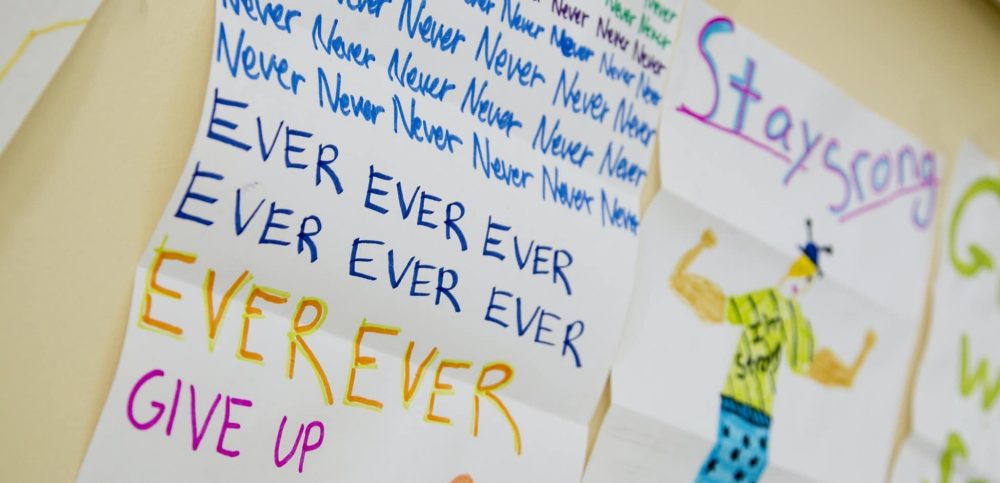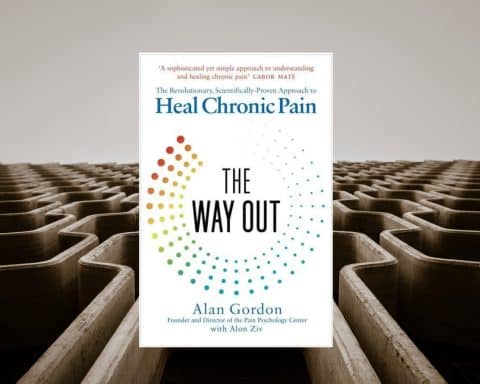Feryad Hussain is a clinical psychologist in the Black Country Healthcare Foundation Trust, who has worked in a wide range of Health Psychology Services for over 20 years.
For cancer patients the arrival of Covid and their increased susceptibility to infection has added to their pre-existing problems, problems which exist before, during and after the pandemic is over.1 Cancer during the Covid pandemic is raising additional anxieties for both patients and staff. This brief article aims to raise awareness of the potential psychological issues facing this group of patients and offers basic recommendations for staff to facilitate management in and across settings, based on existing NICE guidelines.2
Managing susceptibility
The susceptibility of cancer patients to Covid-19 has been a primary concern for the Covid management strategy.3 Findings from the UK Coronavirus Cancer Monitoring Project (UKCCMP) suggest that Covid mortality in patients with cancer is moderated by a range of factors including advanced age, co-morbidities, cancer-specific risk factors and outcomes, degree of malignancy, cancer history and treatment effects.4 In addition there is an increased risk of acquiring infection, as cancer patients may be in contact with Covid patients in hospitals, as well as competing for the current demand on medical staff and health care facilities.5
Jordan suggests that the problem is “less one of susceptibility and competing illness but more one of co-existence” with a race as to which one disease will dominate.6 Consequently, oncology services face significant changes in treatment management, working to minimise exposure to Covid without compromising oncological outcome. Physicians are now making decisions regarding withholding or continuing anti-cancer treatments, and in some cases whether to accelerate end-of-life care, whilst simultaneously trying to protect the patients and themselves from infection.
Cancer patients and their families face a different set of concerns. These include fears about ‘being lost or forgotten’ with the focus being on Covid, and anxieties around ‘new’ treatment decisions and their outcomes. This is in addition to adjustments regarding the practicalities of attending for treatment, i.e., managing travel, financial issues, accessing and adjusting to social and emotional support under social distancing rules as well as worries around protecting themselves and their families from Covid.7
Patients and professionals are under extreme pressure to find a solution …… balancing potential death by cancer or by Covid.
With competing and ever-changing priorities, both patients and professionals are under extreme pressure to find a solution to managing a potentially new problem: balancing potential death by cancer or by Covid.
The rapidity of spread coupled with the lack of information about Covid itself has resulted in a lack of definitive guidelines for healthcare staff. Individual departments have developed service specific recommendations for their patients, with calls for further recommendations to address health care providers’ physical and emotional needs through staff support systems to prevent, identify and manage burnout, psychological stress, or safety concerns.8
The prevalence of psychiatric disorders is known to be higher in cancer patients.
Psychological impact for cancer patients in the context of Covid
The prevalence of psychiatric disorders is known to be higher in cancer patients due to the challenges not only of treatment but the uncertainty of outcome. A pandemic will serve to increase psychological vulnerability and morbidity. To-date, there is little information regarding potential psychological issues facing cancer patients in the context of Covid. Healthcare professional’s base information largely on their own direct clinical experience in order to support staff to increase their understanding of patients experiences and needs.5,7,8,9 Based on the existing research and the author’s personal clinical experience working with this patient group, these are some of the psychological concerns across the cancer trajectory:
Diagnosis
Patients awaiting results are likely to be experiencing dual anxieties, fearing a potential Covid diagnosis as well as cancer.
The cancer-Covid context means that patients awaiting results are likely to be experiencing dual anxieties, fearing a potential Covid diagnosis as well as cancer. The fears regarding one disease may ‘leak’ unconsciously, into the other, merging information and related concerns. Since both diseases are associated with the risk of death, this can result in confusion, panic, dread, feeling overwhelmed, or even disassociation from information regarding symptoms or results. This in turn can lead to difficulties around the understanding of treatment plans. Reassurance alone, without empathy and validation, may leave the patient feeling isolated and misunderstood, with worries exacerbated by social distancing and the related lack of physical touch and reassurance. The appearance of staff in PPE clothing may create a sense of the patient as ‘other; contagious and dangerous.’
The sense of isolation may increase as patients envisage facing an unknown treatment plan under either or both diagnoses, leading them to feel unsafe in an environment where they would ordinarily expect safety and familiarity, leading patients to ‘catastrophise’ the subsequent treatment process. Patients may also hold related personal ‘conspiracy theories’ around Covid itself and as such may be mistrustful of staff and services, and more sensitive to any changes needed.
Treatment
Treatment experiences during the cancer-Covid crisis will reflect this dual context. Patients may not fully comprehend the issues around treatment and risk as they may seek to manage feelings of being overwhelmed by their personal and subjective picture of the situation. They may experience a lack of containment in cases where professionals themselves may either be unsure or inconsistent in their responses due to ongoing changes in government guidelines.
Patients may …. become angry, resentful, feel abandoned or worry about being forgotten.
As treatment options alter or are withdrawn, patients may feel their safety is compromised by a disease that their clinicians cannot (albeit understandably) contain. They may become angry, resentful, feel abandoned or worry about being forgotten by their healthcare teams. Feelings of isolation will be made worse by social distancing, coupled with increased anxiety around contracting Covid from other patients. The camaraderie often seen in cancer services amongst patients in treatment is likely to become a source of anxiety as opposed to validation and support. Patients may also experience resentment that other (non-cancer) patients attending do not share their own levels of susceptibility and treatment limitations, which may feed into feelings of isolation and anger. It is also important to acknowledge that for some patients, cancer will remain the primary focus, not Covid, and these patients may feel rejected or side-lined. They may feel angry at the loss of control the crisis has caused regarding their previous ability to take independent, calculated risks around treatment, making them less psychologically flexible when considering other options. Alternatively, they may become increasingly apathetic, hopeless and distressed.
For both Diagnosis and Treatment stages, these concerns may impact on both attendance and treatment adherence. The level of information to be retained may simply be too overwhelming, resulting in increased forgetfulness around implementing changes in contacts and social distancing, further adding to risk.
Palliative and End-of-life issues
Covid leaves the patient…. with an abrupt departure from family and friends …. with no touch, closeness or sharing.
Traditionally, cancer patients have been able to work with their families and healthcare professionals to work towards a ‘good-death,’ where they have some sense of forethought, forewarning, control, with management of their personal preferences in their experience of death and dying. However, the rapidity and extent of the Covid pandemic and the unpredictable disease trajectory removes options of planning, preparation, and personal choice. Where cancer patients may have talked of a death with dignity, surrounded by friends and family saying their goodbyes, a death by Covid leaves the patient unaware of end-of-life stages with an abrupt departure from family and friends even before hospital admission, with no touch, closeness or sharing of personal mementos. Death by Covid presents a very different picture from death by cancer in the minds of fearful patients. Patients may experience emotions such as, terror, confusion, inability to listen and anger.
We see from these stages the extent that the susceptibility of cancer patients to Contracting Covid creates a new and complex dynamic between illness trajectories, as well as patient adjustment and treatments plans.
Key emotional considerations:
Given the level of pressure facing staff and the unprecedented extension of their roles, any recommendations must be simple enough to incorporate into existing patient care.
The following considerations are an adaptation of existing Level 1 requirements in UK cancer services. They are applicable to all staff irrespective of profession, especially as patients commonly share their worries with ancillary staff. The recommendations aim to facilitate care but do not assume a resolution of all psychopathology.2
Individuation: Acknowledge the fact that every patient will experience the situation differently. This will help patients to feel heard, understood, and confident enough to express their concerns and identify a trusted source of information and support. This will reduce misunderstandings caused by patients seeking advice from other patients, Google, family etc.
Simply telling patients they will be OK may not address these hidden fears, and can suggest indifference.
Reassurance and empathic validation: Remind the patient that currently everyone is facing the threat of Covid, that their fears are understandable, and that measures have been taken to ensure safety for everyone. In doing so, you are modelling to patients that it is possible to function safely. This may reduce feelings of loneliness and isolation, creating increased unity between patient and staff at a time when they may feel alienated from other patients due to risk of infection. Simply telling patients they will be OK may not address these hidden fears, and can suggest indifference as opposed to containment.
Clarity and context: Use clear and simple language when giving instructions, even if you are not sure how long those guidelines may last. Again, you are modelling an acceptance of the fluidity of the situation with confidence. It is common to over-explain or offer convoluted justifications to manage our own discomfort, however, this only serves only to add to confusion and a loss of confidence in information shared. The choice of words and content of the conversation will lessen the patient’s distress since it increases clarity and creates the space to ask questions. If staff exhibit uncertainty patients will not feel safe. In an environment of potential mass panic emotional safety is key, and this is contained by confidence in working with the situation not against it.
Key practical considerations:
Staff should ensure they have developed their own self-care routine.
Self-care: Staff should ensure they have developed their own self-care routine. This will allow them to distinguish between their own and their patients’ needs, as well as preventing them from becoming overwhelmed by their own distress.
Boundaries: It is important that staff do not try to be therapists. Not having time, capacity or skills to deal with the fall out of your conversation will leave the patient feeling worse and impact on subsequent interactions during the course of treatment.
Access to specialist support: Staff should make sure that patients are signposted to specialist psychological support and to detailed assessment of risk or related psychological co-morbidities.
Conclusion
Covid has raised additional psychological distress for cancer patients. It is important that healthcare staff have an awareness of the issues affecting patients in order to facilitate management and progress of on-going cancer treatment.
References
- Shankar,A., Saini, D., Roy, S., Jarrahi, AM., Chakraboty,A., Bharti, SJ and Taghizadeh-Hesary,F. (2020) Cancer Care Delivery Challenges Amidst Coronavirus Disease – 19 (COVID-19) Outbreak: Specific Precautions for Cancer Patients and Cancer Care Providers to Prevent Spread. Asian Pacific Journal of Cancer Prevention. 21, 3, 569-573.
- NICE Guidelines (2019) Improving Supportive and Palliative Care for Adults with Cancer. Retrieved from: https://www.google.com/url?sa=t&rct=j&q=&esrc=s&source=web&cd=2&ved=2ahUKEwjcnsLbnannAhXdQUEAHbNNBhoQFjABegQIBBAB&url=https%3A%2F%2Fwww.nice.org.uk%2Fguidance%2Fcsg4%2Fresources%2Fimproving-supportive-and-palliative-care-for-adults-with-cancer-pdf-773375005&usg=AOvVaw3puc29EbzeXQjxa3aHi_wV
- Moujaess E, Kourie HR, Ghosn M. (2020) Cancer patients and research during COVID-19 pandemic: a systematic review of current evidence. Crit. Rev. Oncol. Hematol. 150, 102972 . Retrieved from: https://www.futuremedicine.com/doi/full/10.2217/fon-2020-0397
- Williams, L. (2020) CCC19 Reveals Covid-19 Cancer Patient Mortality, Risk Factors. Cancer in Special Situations in ESMO (European Society for Medical Oncology). Retrieved from: https://oncologypro.esmo.org/oncology-news/daily-news/ccc19-reveals-Covid-19-cancer-patient-mortality-risk-factors
- Al-Quteimat,OM. And Amer, AM. (2020) The Impact of the Covid-19 Pandemic on Cancer Patients. American Journal of Clinical Oncology. Published online: doi: 10.1097/COC.0000000000000712 PMCID: PMC7188063 PMID: 32304435
- Jordan, RE. (2020) Covid-19: risk factors for severe disease and death. Editorials BMJ. 368,1198 Retrieved from: https://www.bmj.com/content/368/bmj.m1198.long
- Gregucci, F., Caliandro, M., Surgo,A., Carbonara, R., Bonparte,I and Fiorentino,A. ( 2020) Cancer patients in Covid-19 era: Swimming against the tide. Radiotherapy Oncology. 2020 Aug; 149: 109–10. Retrieved from: https://www.ncbi.nlm.nih.gov/pmc/articles/PMC7129219/
- Ueda, M., Martins,R., Hendrie, PC., McDonnell, T., Crews, JR., Wong, TR and McGeery, B et al (2020) Managing Cancer Care During the Covid-19 Pandemic: Agility and Collaboration Toward a Common Goal. JNCCN—Journal of the National Comprehensive Cancer Network .18,4, 366-369. Retrieved from:https://europepmc.org/article/med/32197238
- Singhai, P, KS Rao, KS., Rao, SR. and Salins, N. (2020) Palliative care for advanced cancer patients in the Covid-19 pandemic: Challenges and adaptations. Cancer Research, Statistics, and Treatment. 3,1, 129-132.
Featured photo by US National Cancer Institute on Unsplash






